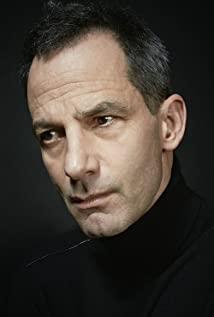The film revolves around Arendt's coverage of Eichmann's trial in Jerusalem. As a Jew who lived through the Jewish segregation camp and then immigrated to the United States, Arendt's take on the report of the trial was unexpected: She believes that Eichmann did not commit the heinous crime of killing Jews because he was a He is a perverted demon in his heart, but he is a bureaucrat who only cares about his own promotion. He has no ability to think in the face of right and wrong, and is a "banal evil".
Arendt did not expect that this view can be said to have caused a thousand waves. First, the magazine received numerous angry complaint calls, and the school banned her from continuing to teach. Years of old friends turned against her, even Israel. The intelligence services of the United States came directly to her to ban her from reporting on the Eichmann trial.
Arendt's definition of Eichmann as a "banal evil" is seen as a defense of him, and Arendt's approach is seen as defending the Nazis. Eichmann is believed to have ordered the slaughter of six million Jews and that he was a perverted demon with no humanity. Arendt, on the other hand, believes that Eichmann is just an ordinary person, and his motives for making this decision are not due to perversion or hatred, but unconditional obedience to orders and blindly wanting to be promoted. Arendt believes that he committed the heinous crime because he lacks the ability to think independently and has no judgment in the face of right and wrong.
In addition, people criticized Arendt for blaming the Jewish leaders in part for the massacre of the Jews, and making the victims pay, even if only partially, for the harm they suffered, which was unacceptable to people, and the Jews in the first place. Arendt argued that she was not putting the blame on the Jewish leaders, but was simply stating the fact that if the Jewish leaders had not cooperated with the Nazis, the number of Jewish deaths would not have been as high as they would have been later.
Arendt's view can be said to be subversive today. I think the reason people are so outraged by her views is that she was thinking too much rationally in her trial coverage, while most people were reacting emotionally. Most of the public will not keep calm in the face of this kind of evil, and analyze Eichmann's motives through reason, to think and judge Eichmann's true motives, everyone just saw the fact that he did evil, and thought he was a man who should be It's enough to be slashed by a thousand swords. Arendt, on the other hand, has always listened and judged rationally. He has never been emotional because of his Jewish identity, nor has he used a preconceived perspective to examine Eichmann's crimes. This is actually against the majority of people. Cognitive is also unreasonable, so it is assigned the title of "cold-blooded and arrogant".
What the public cannot accept is that Arendt sees Eichmann as a mediocre person, that is, someone who is not vastly different from you and me. People may think that it is not a big sin for a person to obey the leadership and want to be promoted. Many people have this selfish desire to climb up in the system, but for this reason, it will lead to a huge massacre in human history. This is incomprehensible to the public: how can we be like this demon? He's a perverted exception, and we're all normal people, we can't possibly think like him!
Of course, what is even more unacceptable to the public is that the Jewish leaders themselves are responsible. The Eichmann trial had aroused unprecedented enthusiasm among the Jewish community, and everyone seemed to be united in one heart and the same enemy. But if it is said that the Jewish leaders, that is, the Jews themselves, also have problems with their organization, it is nothing more than pointing the finger at themselves, which is unacceptable to the Jews.
Arendt expressed her views with a naivety, thinking that it was enough to objectively present what she saw and heard about Eichmann, and she did not expect that her views would cause an uproar. This is because although she is calm and rational enough, she does not understand people's hearts. The history of the Nazis in World War II shows, to some extent, how easy it is to get caught up in blind emotion, rather than making rational judgments in the first place. Eichmann was an extremely cold-blooded demon to us who showed no emotion even while listening to the bloody testimony of the victimized Jews. But when he justified his actions, he was plausible, even excited. He had his own set of value system. In his value system, loyalty to the party and the state and honor were above all else, even if the price was six hundred the lives of thousands. It is not so much that he does not have the ability to think independently, but rather that he has a very narrow emotion and impulse. Under this emotional trend, he does not regard Jews as human beings, but only regards them as a tool for self-realization. A victim that can be annihilated for a higher purpose.
Back to the public that Arendt faced, they had a strong hatred of the Nazis, and the Nazis, especially the Nazis who slaughtered Jews, were not people, but monsters or demons in their eyes. In this mood, they could not accept Arendt's analysis of Eichmann as a person very much like them. They felt that treating Eichmann as a person was to defend him, which was intolerable. This emotion is reasonable and easy to understand, but in a sense, it is actually blind to a certain extent.
Arendt's innocence is that she has been trying to reason with a group of people who are angry. However, there is no reason to say that since your views are inconsistent with ours, we don't want to hear them at all. Arendt's bravery also lies in her innocence, her lack of insight into the human heart, and she was not intimidated from the beginning because she felt that she was objective enough and reasonable enough. But it is reasonable, and sometimes it may not be convincing, but can only bring endless troubles to her career and life. The personal attacks she encountered would be infinitely magnified in today's era when everyone can say a few words on Weibo.
Eichmann's atrocities are worth pondering, and Arendt's experience is equally telling. Arendt very much wanted to warn the world through his thoughts on Eichmann's evil, not to let human beings suffer another huge catastrophe because of the lack of thinking ability. But in fact, it is very difficult for anyone to think beyond the constraints of their own emotions and vision, and it is even difficult to realize their own emotional biases and vision limitations, let alone Say acknowledgment and try to break through. After all, man is an emotional animal.
View more about Hannah Arendt reviews










